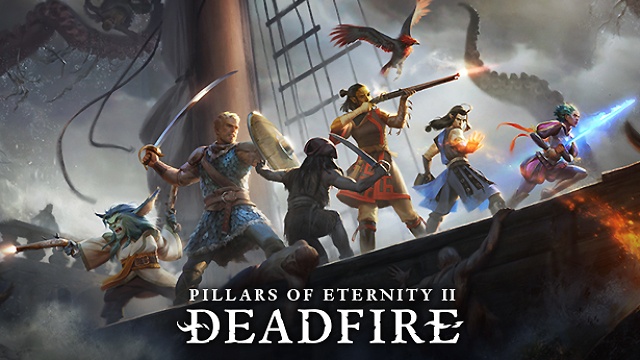
Assigning actions for each hero mercifully takes mere seconds, though very occasionally I’d find that I had to re-issue orders I thought I’d already given (either a bug or an easy mistake to make I’m still not certain). The good thing is that this challenge is rarely a problem because the UI is astonishingly intuitive, and Obsidian doesn't clutter the screen with elements that have nothing to do with the act of kicking butt.
#Pillars of eternity definitive edition steam trial
Pillars itself makes no secret of this brutality, as a descriptor for the Normal mode screams that it "is NOT recommended for newcomers to real-time party-based RPGs." Not hard enough? Try the Trial of Iron mode, which allows only one save file that automatically deletes if you die. I once let my party of six adventurers auto-attack (and there is that feature, at least) a group of ghouls in the woods on the easiest mode, and all except the tank died in the 10 seconds it took to glance at new emails on my phone. Neglect the pause button here, even for seconds, and you die - even on easy difficulty. Combat, which draws heavily from the Baldur’s Gate tradition, is the same kind of pausable real-time squad battle that BioWare made famous, but don't expect a Dragon Age-type experience where you can get away with effectively ignoring tactics. All that focus on tough choices might lead you to wonder if Pillars is all talk, but in fact, it's intensely difficult and tactical.

Time and time again, Pillars shows that it's less interested in the content of the story (although that's wonderful) than it is in how the story is told. It makes up for the absence of flashy cutscenes with rich pen-and-ink illustrated storyboards covered with rich descriptions that convey nuances no animation could. A good chunk of its 70 hours is made up of absorbing at least a couple of lengthy novels’ worth of text. The upshot of all this is that Pillars isn't a game for folks who don't like to read. In some cases, you're better off sticking with the stock responses, meaning each must be read and considered carefully regardless of what kind of character you’re playing. A reputation system enlivens the options further, but even it sometimes tempts you into to the same traps. Much like many other contemporary story-driven RPGs, new conversation options unlock depending on whether you have, say, seven points in Lore or 14 in Might, but it radically turns the concept on its head by sometimes making these special options the wrong ones. What then? You’re constantly presented with this kind of choice, and they seldom get easier.Īnd yet Pillars's roleplaying strengths go deeper still.

Pillars's narrative greatness, however, is that it makes you question even this normally cut-and-dried situation by giving the killer a powerful and borderline justified motive. Lesser RPGs would stop at this and let such a quest devolve into a simple revenge and bribery scenario. Murder mysteries, for example, become much more interesting when the victim can show up to testify posthumously. At times, that ability pushes what appears to be a humdrum side quest to greatness.

But the appeal here is that the Watcher's accidentally obtained ability (not unlike the Inquisitor in Dragon Age: Inquisition) allows him to see through the lies of the people around him, and that's a handy skill in a world where people openly hang soulless children from trees like Christmas ornaments. Rest assured, there's still plenty of that. The formula works well here because it helps Pillars avoid falling entirely into the cliché trap of the predictable Western fantasy RPG, in which a cocky young hero arises from humble origins and kills whatever dragons and bandits need killing. Pillars of Eternity casts you in the reluctant role of a Watcher – essentially someone who can "read" the souls of those around him or her (living or dead) for insights into their past lives or motives. That "reaching out to their soul" bit isn't stylistic cheesiness. It'd be a roleplayer's dream come true, if it weren't for the slight annoyance that some of the characters are voiced and others aren’t. Reach out to their soul, and you're slapped with a personal story that spills out over fascinating walls of text but has nothing to do with the main story, and the quality of writing involved is such that these moments never entirely lose their appeal.

Pillars of Eternity is something of a welcome novelty, in that such elaborate characterizations aren't just reserved for main characters they extend to everyone, even random folks found on cobblestones of Defiance Bay or dozing drunkenly in the corners of weathered taverns. Countless other characters crossed my path in the coming days, each with their own stories and personalities and each usually (but not always) voiced by a competent actor.


 0 kommentar(er)
0 kommentar(er)
